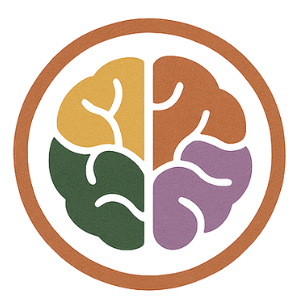Unmasking My Brain at 46
I was 46 when I started listening to The Complete Guide to Asperger's Syndrome by Tony Attwood, learning more about the neurodivergence that runs in my family.
Before I finished the first chapter, I started to panic. This book was describing how my brain worked. I quickly searched online for an autism self-assessment and after taking a few tests, there was no doubt in my mind that I was autistic. I finally knew why I was different than most of the people I had ever met. Over the next few weeks, I kept re-taking the tests and analyzing the questions to make certain I was answering them correctly.
Soon after, I started working with a therapist and obtained a formal diagnosis for autism early last year and combined-type ADHD this year. Learning about autism and ADHD quickly became my new special interest. I listened to audiobooks, podcasts, and watched videos of others who received late diagnoses. Now equipped with the knowledge and language I lacked before, I was able to examine my past with a new lens.
My life has always been atypical compared to my peers. I’ve spent most of my life within my own mind, isolated from those around me. I didn’t understand why the people around me behaved the way they did. In elementary school, my teachers rarely got through to me. Since I was always quiet and kept to myself, they left me alone; however, I was generally disinterested in what I was learning and barely passed my classes.
Before I began sixth grade, my mother and I were called to a meeting at my school with the principal, my sixth-grade teacher, and a district psychologist to discuss having me tested for learning disabilities. Back in the 1980s, autism was highly stigmatized and considered to be a failure of the parents, so my mother convinced me to keep this meeting a secret from everyone, including my father. We also didn’t have the money to deal with the extra cost of having a “special” child. Instead, I was told to try harder in school to stay out of the special education classes. In an attempt to do better in school, I started to mimic the people around me. Slowly, I started doing well in my classes; however, my inability to assimilate to the behaviors of my peers didn’t take my weirdness away, but learning how to mask made it less noticeable.
In college, I got better at masking. However, I continued to struggle socially, and I felt that people could tell there was something off about me. When I was working as a tutor, Alex, my supervisor, was working on getting licensed as a psychologist, and advised me to get a psychological evaluation. However, without medical insurance, there was no way I could afford to pursue any professional help. Deep down, I knew there was something different about me, and that I would likely never find out. So, I resorted to pursuing a life that would force me to become “normal” by jumping into a marriage with the first woman I slept with. It felt like an escape hatch into a pre-assembled life, but it just became another mask to hide how lost I was. This constructed life started to eat away at me, and I realized I was being slowly erased as a person, even attempting to disappear completely.
When my mom was near the end of her life, I moved in to help my dad since he couldn’t afford professional care. That began a long period of struggling to cope with what I now know was severe autistic burnout. Since I didn’t have adequate resources to get help, I tackled mental health issues and chronic physical pain through self-medication. Years of this cycle of self-medication took its physical and mental toll on my body, requiring me to apply for Medicaid to obtain treatment. It was then that I found the courage to stop drinking, start exercising, and received necessary medication to manage my chronic pain.
Still lost, I knew this new path was necessary for me to lead a more compatible life and become my most authentic self. When I started taking care of my health, things began to fall into place. I wasn’t broken, or lazy, or failing. I obtained employment, and eventually, a formal evaluation confirmed what I had already suspected: I was autistic. This has always been my truth; all I had to do was stop masking long enough to see it.
If you’ve ever felt like an alien crash-landed into the wrong world, ask yourself why. What you uncover might reveal everything.
Come as you are, take what you need. I’ll be here.
